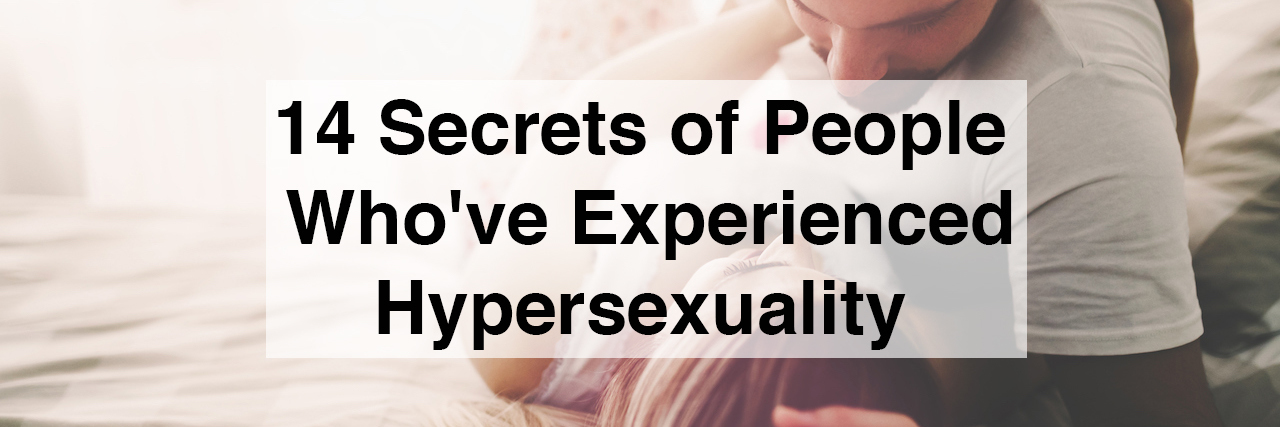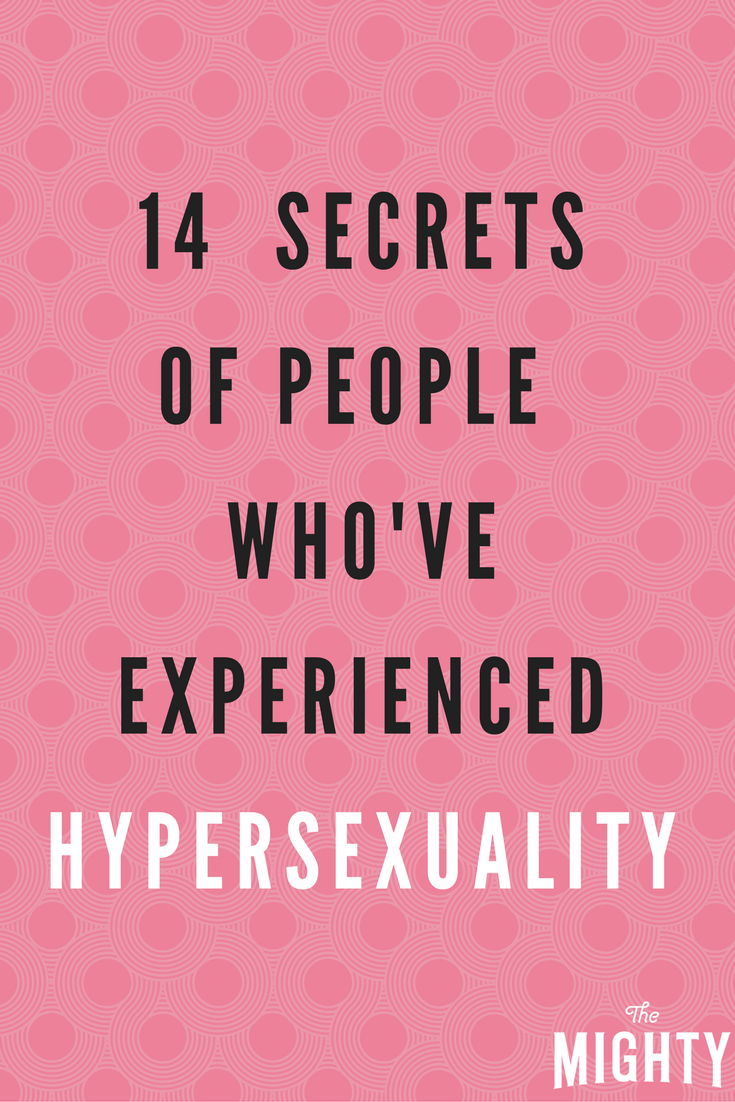Sex is great, and there’s nothing wrong with having it as frequently (or as infrequently) as your heart desires. But what makes “enjoying sex” different than hypersexuality? As Mighty contributor Jess Melancholia describes it:
Hypersexuality is, from my personal experience, an overwhelming compulsion and addiction to sex and sexual content. When I’m hypersexual, I get intense cravings for sex. It’s similar to the sort of ‘butterflies in your stomach’ feeling when you fall in love. It’s an intense high that gives me a massive boost in self-confidence. The temptation to act out is so strong I can practically feel it on my skin and taste it on my tongue. The worst part about hypersexuality is I’m never satisfied. I have to actively resist what my body is essentially trying to do on autopilot. If I’m not careful, then I’ll do something I’ll regret.
• What is Bipolar disorder?
When thinking about what makes hypersexuality — a symptom associated with bipolar mania — different than a natural desire for sex, it’s important to remember this preoccupation with and craving for sex interferes with the person’s life in a negative way. It’s not being “easy” or having sex for fun. In fact, the definition of hypersexuality includes that the individual has made attempts to stop the behavior to no avail. While not every maladjusted relationship with sex is hypersexuality, it’s very real for the people who experience it — and they deserve a space where they can talk about it without shame.
To get the conversation started, we asked people who’ve experienced hypersexuality in our mental health community to share one thing they wish others understood.
Here’s what they told us:
1. “It’s constant, unrelenting and very seldom fun. It can lead to some incredibly reckless, self-destructive and downright dangerous behavior. It scares us just as much as other people, spouses may be worried we will cheat because they might not be able to keep up with us. We can’t even keep up with it ourselves. Having a plan in place to ensure safe hypersexual behavior is very important… It’s a part of our illness we can’t just will away.”
2. “It’s not our fault! It freaks us out just as much as it does others.”
3. “It doesn’t mean I’m unfaithful or I’ll be unfaithful; it’s something that comes and goes.”
4. “Sometimes I can’t control it. I feel nothing while having it, but when I come down, the guilt eats me alive.”
5. “It’s unfortunate, sometimes when I’m pulling out of a downward spiral I crave that specific type of closeness. It can at times push my parter away (yes, there is a thing as too much sex). I try and be mindful and appreciative of the many other ways he shows me he loves me and cares.”
6. “[It] always happened (before being medicated) when I was manic. However it wasn’t truly about the sex but rather about controlling at least one aspect of my life. At times it would make me feel powerful (grandiosity) to the point I would overlook the upcoming consequences of my actions. Sex during these periods was almost never linked to emotional attachments, either.”
7. “For me it was just like having a prolonged manic episode… making reckless choices and feeling like you’re not in control of your actions. It’s scary when you come down and look back at what happened and you think… wow what is going on?… like you’re a completely different person.”
8. “I have no control over my actions. The part of my brain that makes rational safe decisions has been hijacked by the bipolar.”
9. “[It’s a] want and need for closeness. To feel in control when and where there was none. But sex was never about intimacy, it was always manic and primal. It was like someone else took over.”
10. “It’s like having a constant hunger for intimacy, just like people have a craving for food. It’s all you can think about.”
11. “In my early days, I didn’t care who, when or where. Sometimes it would be with my partners, sometimes with perfect strangers. It was one aspect of my pre-marriage that added to the stress of my marriage. I wanted it constantly, and if he didn’t provide, I felt that he didn’t love me and that he was cheating on me (which he was). I would get angry and distant. While I wouldn’t cheat on a significant other, the times I wasn’t with someone led to bad decisions. Thankfully I never ended up with STDs or AIDS, but it could have been very different.”
12. “It’s not always tied to bipolar disorder. I don’t have bipolar disorder, but I am still hypersexual. My previous psychiatrist immediately diagnosed me with bipolar disorder based solely on my hypersexuality. I had no other symptoms, but because I have been hypersexual my entire life, I automatically had bipolar.”
13. “The urge to be wanted despite being an emotional wreck is overpowering. It demands that I forget everything sensible. It’s something I can’t understand and can’t control. But when the urges have passed or been satisfied it just makes me feel worse. And the regret lasts.”
14. “Sometimes it isn’t even about being ‘horny’… it’s about feeling a connection. Feeling something… anything. Sometimes we may be too caught up in everything and although we know that sex and love are two very different things… it all meshes together into one during an episode of hypersexuality and we are just as frustrated with it and confused as you probably are! So be patient.”


